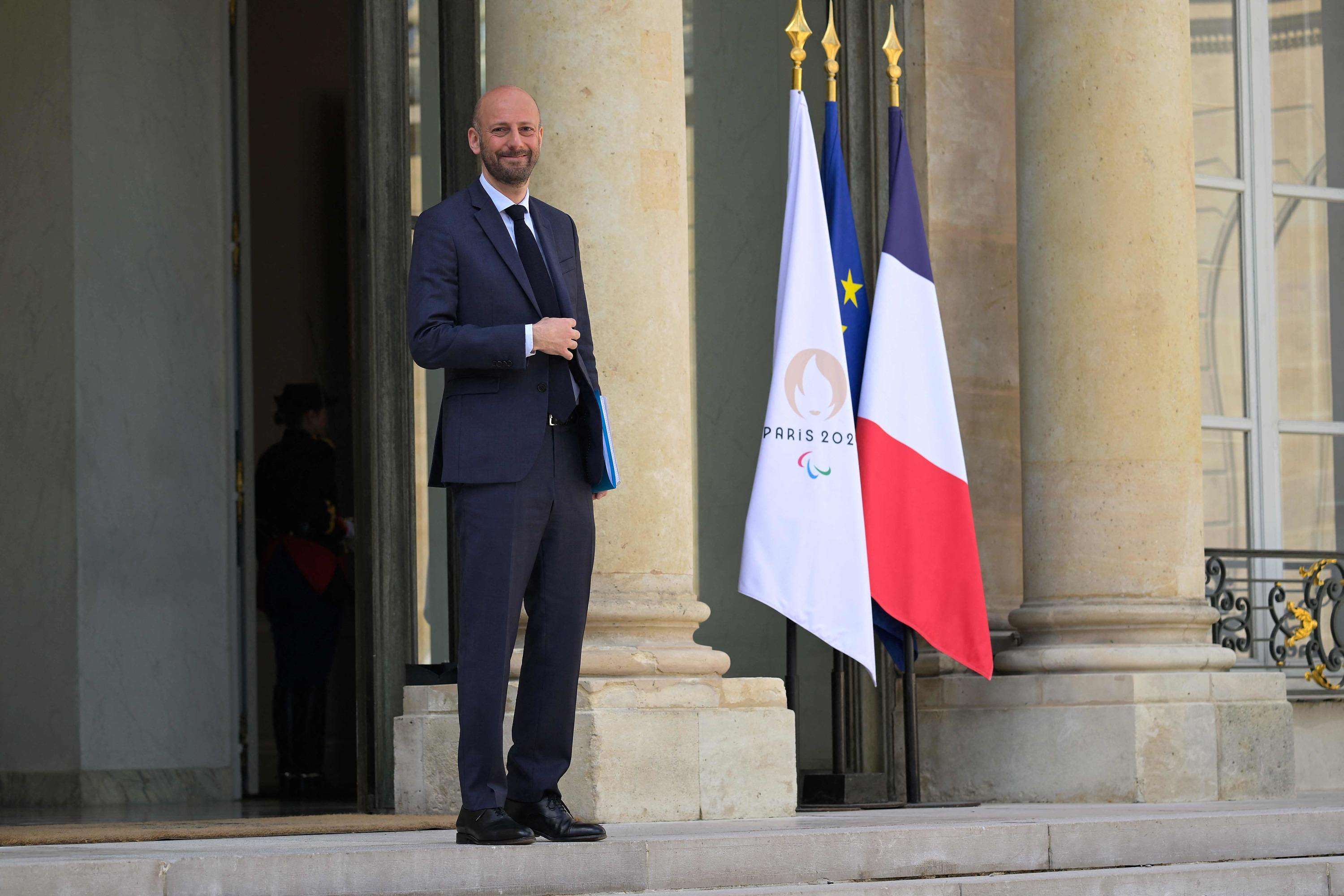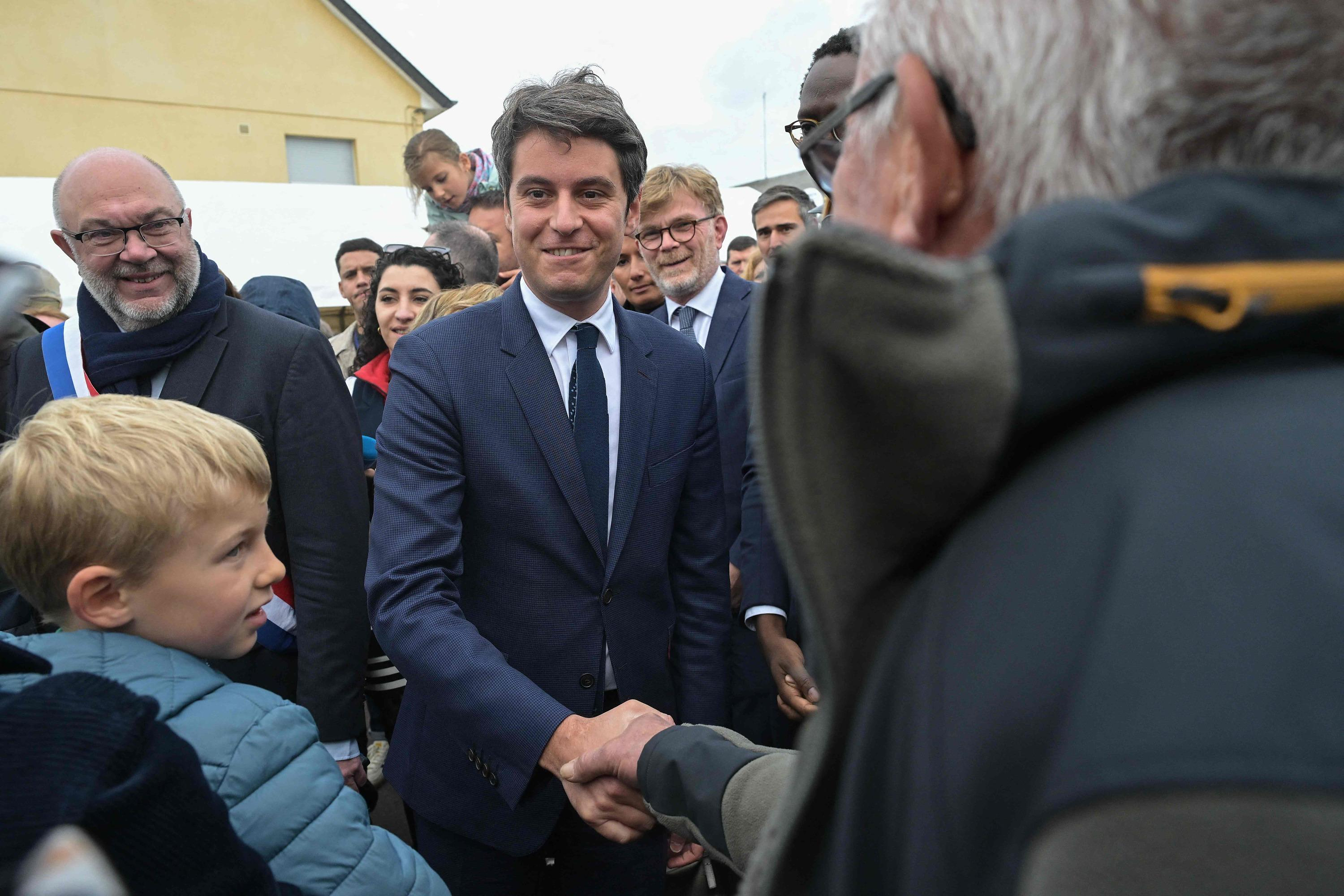Daniil Trifonov and all the other world's greatest pianists may have to be very strong now if, as is likely, they don't already know it. Johann Sebastian Bach had no room at all for a Steinway D-274, a large Bösendorfer Imperial or a Fazioli F 308 or any other three-meter-long grand piano, anyone who has ever been to the Leipzig Bach House, at least suspects this play the Well-Tempered Clavier or the Art of Fugue, the Italian Concerto and the Suites in the concert halls of the world.
The ceilings of the Bach House would probably have capitulated to a Steinway Bösendorfer Fazioli – after all, a grand piano like that weighs a good 500 kilos. And also the nerves of the neighbors when they compose at night.
The Well-Tempered Clavier was created on an inconspicuous, presumably rectangular case. Not big, not expensive, easy to tune, easy to carry, quiet, the ideal home and teaching instrument. A wonderfully rattling, wonderfully singing thing that is based on the playing system of one of the oldest musical instruments, the monochord.
And it sounds as if a few tiny picks were scurrying around between the strings inside – driven by the pressure of the keys. They tap and caress and react in the most subtle way to what the pianist is doing with his fingers.
It's called the clavichord. It was quite popular up until the mid 18th century and a little bit beyond. It was the “first Grammatica” for everyone who played keys, as the famous music encyclopedia Johann Gottlieb Walther wrote in 1732. According to Walther, anyone who can do it on the clavichord can also do it “on spinets, clavicymbals, shelves, positives and organs”.
On the clavichord, with which you can change the volume and pitch by sheer finger pressure, you can even get a form of vibrato (called Bebung), learn how to handle the keys carefully. It is "suitable for the finest nuances of the lecture, often refreshment for the sufferer and cheerfulness for the sympathetic friend" (so it was in a dictionary in 1802).
Friedrich Gulda loved the strange timbre box and even used it in concerts – albeit electronically amplified. Privately he has recorded parts of Bach's Well-Tempered Clavier, the Chromatic Fantasy and Fugue, the second English suite. The tapes were published posthumously on CD five years ago. They didn't trigger a boom in the clavichord.
This was not necessarily to be expected for a number of reasons. There aren't many instrument makers left who know how to build or replicate the string blade. And the clavichord paints pictures of a completely foreign beauty in the room. However, it must not be very large, the room. A clavichord is a chamber music instrument in the truest sense of the word.
Even in chamber music halls, clavichord concerts are hardly to be expected in the future, because even chamber music halls are natural habitats for grand pianos today due to their size. So you are dependent on recordings. And a pianist who is not satisfied with the globally smooth franchise sound of the Steinway Bösendorfer Fazioli. A color fanatic.
Which brings us finally to András Schiff. Of course, he also belongs in the Daniil Trifonov world's biggest league. With his opinion about the streamlined uniform sound of those instruments on which he is supposed to play when he is not out and about with his own grand piano, he has not necessarily only made friends.
András Schiff owns two clavichords. They are in his apartment in Florence and in Basel. It has to be. Because András Schiff's days begin with musical morning meditations. He plays Bach before breakfast. He used to do it on a grand piano. Now he plays the clavichord. And he doesn't do it for the neighbors.
It's a very personal relationship he has with his clavichord. According to Schiff, it is a gentle being, an “oasis in our noisy world”. In this oasis, Schiff has now (for ECM) recorded great Bach little things and fabulous greatness. The Chromatic Fantasy and Fugue, the early Capriccio on his brother's departure, the Inventions and symphonies, above all, however, which Bach wrote for the lessons (those of his sons and everyone who later sat at the piano).
It suddenly sounds as if Günther Uecker had painted wonderfully colorful watercolors with nails. A see-through, transparent play of lines that keeps your ears free for ever new, ever finer nuances.
Schiff says that he has been playing Bach himself on the grand piano in a more differentiated and understandable way since he has played the clavichord. More intimate, more narrative. The clavichord is a singing instrument. But can also be quite a diva if you forget how sensitive it is. It forgives nothing. Not suitable for brutes, except for taming them.
The worst and best thing about this album, however, and Daniil Trifonov and all the other world's greatest pianists have to be very strong: You don't want to hear it any other way.

 B:SM will break its investment record this year with 62 million euros
B:SM will break its investment record this year with 62 million euros War in Ukraine: when kyiv attacks Russia with inflatable balloons loaded with explosives
War in Ukraine: when kyiv attacks Russia with inflatable balloons loaded with explosives United States: divided on the question of presidential immunity, the Supreme Court offers respite to Trump
United States: divided on the question of presidential immunity, the Supreme Court offers respite to Trump Maurizio Molinari: “the Scurati affair, a European injury”
Maurizio Molinari: “the Scurati affair, a European injury” Beware of the three main sources of poisoning in children
Beware of the three main sources of poisoning in children First three cases of “native” cholera confirmed in Mayotte
First three cases of “native” cholera confirmed in Mayotte Meningitis: compulsory vaccination for babies will be extended in 2025
Meningitis: compulsory vaccination for babies will be extended in 2025 Spain is the country in the European Union with the most overqualified workers for their jobs
Spain is the country in the European Union with the most overqualified workers for their jobs In the United States, a Boeing 767 loses its emergency slide shortly after takeoff
In the United States, a Boeing 767 loses its emergency slide shortly after takeoff The A13 motorway will not reopen on May 1
The A13 motorway will not reopen on May 1 More than 1,500 items for less than 1 euro: the Dutch discounter Action opens a third store in Paris
More than 1,500 items for less than 1 euro: the Dutch discounter Action opens a third store in Paris 100 million euros in loans, water storage, Ecophyto plan… New measures from the executive towards farmers
100 million euros in loans, water storage, Ecophyto plan… New measures from the executive towards farmers New York justice returns 30 works of art looted from Cambodia and Indonesia
New York justice returns 30 works of art looted from Cambodia and Indonesia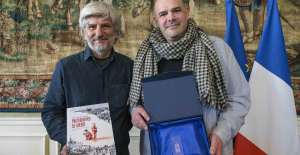 Les Galons de la BD dedicates War Photographers, a virtuoso album on the Spanish War
Les Galons de la BD dedicates War Photographers, a virtuoso album on the Spanish War Theater: Kevin, or the example of an academic failure
Theater: Kevin, or the example of an academic failure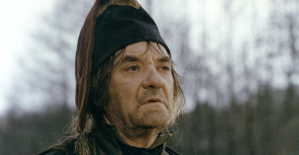 The eye of the INA: Jean Carmet, the thirst for life of a great actor
The eye of the INA: Jean Carmet, the thirst for life of a great actor Skoda Kodiaq 2024: a 'beast' plug-in hybrid SUV
Skoda Kodiaq 2024: a 'beast' plug-in hybrid SUV Tesla launches a new Model Y with 600 km of autonomy at a "more accessible price"
Tesla launches a new Model Y with 600 km of autonomy at a "more accessible price" The 10 best-selling cars in March 2024 in Spain: sales fall due to Easter
The 10 best-selling cars in March 2024 in Spain: sales fall due to Easter A private jet company buys more than 100 flying cars
A private jet company buys more than 100 flying cars This is how housing prices have changed in Spain in the last decade
This is how housing prices have changed in Spain in the last decade The home mortgage firm drops 10% in January and interest soars to 3.46%
The home mortgage firm drops 10% in January and interest soars to 3.46% The jewel of the Rocío de Nagüeles urbanization: a dream villa in Marbella
The jewel of the Rocío de Nagüeles urbanization: a dream villa in Marbella Rental prices grow by 7.3% in February: where does it go up and where does it go down?
Rental prices grow by 7.3% in February: where does it go up and where does it go down? Even on a mission for NATO, the Charles-de-Gaulle remains under French control, Lecornu responds to Mélenchon
Even on a mission for NATO, the Charles-de-Gaulle remains under French control, Lecornu responds to Mélenchon “Deadly Europe”, “economic decline”, immigration… What to remember from Emmanuel Macron’s speech at the Sorbonne
“Deadly Europe”, “economic decline”, immigration… What to remember from Emmanuel Macron’s speech at the Sorbonne Sale of Biogaran: The Republicans write to Emmanuel Macron
Sale of Biogaran: The Republicans write to Emmanuel Macron Europeans: “All those who claim that we don’t need Europe are liars”, criticizes Bayrou
Europeans: “All those who claim that we don’t need Europe are liars”, criticizes Bayrou These French cities that will boycott the World Cup in Qatar
These French cities that will boycott the World Cup in Qatar Toulouse-Racing 92: The liberating entry of Antoine Dupont, the Ile-de-France shipwreck... The tops and the flops
Toulouse-Racing 92: The liberating entry of Antoine Dupont, the Ile-de-France shipwreck... The tops and the flops Premier League: Sheffield United relegated after heavy defeat against Newcastle
Premier League: Sheffield United relegated after heavy defeat against Newcastle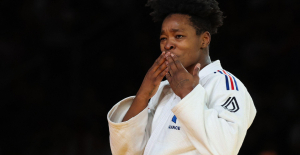 Judo: Audrey Tcheuméo consoles herself with a 5th European coronation
Judo: Audrey Tcheuméo consoles herself with a 5th European coronation Tennis: in Madrid, Rafael Nadal wins his revenge against Alex De Minaur
Tennis: in Madrid, Rafael Nadal wins his revenge against Alex De Minaur





